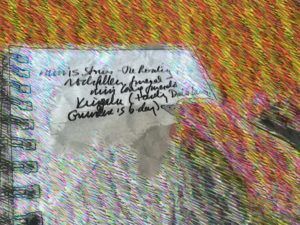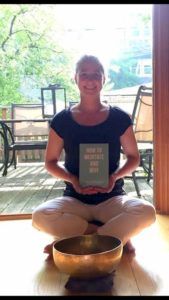 What to do when your writing practice falls apart?
What to do when your writing practice falls apart?
Yesterday’s email started with this:
“I’ve fallen off. Crazy work week…I’m lost!”
It’s not uncommon when someone commits to my Bring Your Book to Life® Program that at some point they wonder, “What was I thinking? How am I going to get that first draft written in the next 8 [or 7 or 6 or 5] weeks?”
Suzette actually knew before she committed that she’d need more than 8 weeks, since this was a busy time for her.
When she signed up for Bring Your Book to Life® it was with the intention of getting clear on her book concept and outline and maybe write a first draft of a chapter or two within the time frame, then doing most of her writing this summer when her academic schedule let up.
However, hearing other people whipping through chapters and reading powerful writing at the end of our groups calls, she suddenly panicked.
[bctt tweet=”When Your Writing Practice Falls Apart, Steps 1-4 ” username=”LisaTener”]

I had Suzette relax and ask herself some questions to get into a calmer and more rational space. The facts were actually much better and clearer than the emotions she had been feeling.
- Slow Down: Take a breath. You may even be on track with what you committed to. You may just be panicking because that’s what humans do.
- Ask, “What did I say I’d do?” What did you commit to? Write it down or speak it aloud to someone.
- Ask, “What did I actually do?” Maybe you did what you said. Maybe you’re close. Or maybe you’re realizing your expectations were unrealistic.
- Regroup: “Does my action plan need updating?” Do you need to find an extra two hours a week more than you planned to meet your goal? If not, would you be comfortable setting a new target date? Can you find a way to hold yourself accountable in the additional time you set?
Since Suzette had set a goal of finishing her book or book proposal this summer, I suggested she replace her book vision statement with a course vision statement and read the latter instead each day and whenever she began a writing session.
Here’s what I suggested for her new course-oriented vision statement:
With Bring Your Book to Life®, I set myself up for summer success—an outline I love and a delightful and fun writing habit that joyfully pulls me along.
She could return to the book vision this summer, but for now, the course vision seemed much more calming and inviting.
Part 2 of When Your Writing Practice Falls Apart: Get Inspired and Have Fun
Okay, so now, after her initial reaction to her writing practice seemingly falling apart, Suzette took stock of where she truly was and it wasn’t at all far from her initial intent. She’d just gotten nervous when she looked at what others were accomplishing.
“I don’t want the book to become one more pain in the butt I have to accomplish. I enjoy writing. Writing delights me.”
Now, we had to move Suzette from irritation and frustration to joy and delight again.

I asked her what would make writing fun for her. “Can you imagine writing as a delightful retreat from all the other things you have to do?”
“Can you view it as a vacation? A peaceful luxury time.”
“An oasis!” Suzette chimed in. “Yes, I can. I love that.”
A writing oasis.
Suzette used the example of exercise. “It can be a chore or I can enjoy it. I can know all the endorphins I’m producing and I can have fun and get my yayas.”
So, we’d revisited her commitment and saw that she was on track and we’d reframed the context to make it fun again. We changed the vision statement to reflect her goals for the short time period and keep her head in the game.
Our next step was to consult her “Muse.”
What’s Your Muse Got to Say?
 For the Greeks, the Muses were the goddesses of inspiration in a variety of fields. When I talk about consulting your muse, I think of directly accessing your creative source, the font of inspiration, your inner knowing, that wise and all-knowing aspect of you.
For the Greeks, the Muses were the goddesses of inspiration in a variety of fields. When I talk about consulting your muse, I think of directly accessing your creative source, the font of inspiration, your inner knowing, that wise and all-knowing aspect of you.
Sometimes the muse shows up as a wise being, a spiritual teacher, an animal totem, a symbol, an archetype. Other times the muse just sounds like that regular voice inside your head or you just get this felt sense that you’re connecting to something deeper than the everyday you. It may feel like the muse is inside you or outside of you. Doesn’t matter.
“Am I making this up?” I hear that a lot. Don’t worry. That doesn’t matter either. Just go with what you get when you do the exercise.
I led Suzette in a guided visualization where she walked through a meadow into the woods to a clearing with a small building where her muse was waiting.
We asked her muse what it wanted her to know about this stress and sense that she was behind.”It’s gonna be okay.”
“Be Patient.”
“It’s all going to work out.”
I asked Suzette to take that in. Feel it in her body. “It’s all going to work out. How does that feel?”
“Concept is one thing. Feeling it is really good.”
I then asked Suzette to ask her muse how to make the time spent on her book—planning and writing—fun, an oasis.

Her muse suggested that, “An element of preparatory ritual would make it fun. Changing my state into one of joy and creativity. I think of music.
Her muse’s response could not have been more timely. Two days before Week 5 and one of week 5’s main lessons is how to create a writing ritual that helps you get in the groove and write in the zone—in that state of inspired flow.
Her muse also suggested creating a good space to write in, to create more spaciousness.
“My home is littered with stacks of paper from work. My muse wants me to clear space so it’s not cluttered.”
I asked whether the space should be in her home or outside of it. It seemed that for her home would be best, but her muse also suggested further consideration.
For some people, it’s important to get out of the house to be in a space not associated with other household or work activities. For others, home is an oasis, provided you create an inspiring space to write.
I loved that her muse suggested creating space because that is actually step 1 of the writing ritual I call “Writing in the Zone.” We talk about both inner space where we can get in touch with the stillness where work can begin and we also explore external space such as a writing desk, a room to write or another inspiring space.
We asked her muse about outline, as well, since that was one of her main goals for the class now—to create a structure for her book.
“Next time, play with your outline. Change it. Sit down and put out five ideas. Experiment. Be bold with structure, not hung up on developing perfection.”
She liked that. “It’s feels like we’ve created space for my book now.”
Her final advice from her muse: “You’ve got this.”
How do you experience your inner muse? How do you work with your muse? Has your muse ever helped you when you felt your writing practice was falling apart? Share your comments and questions below.


